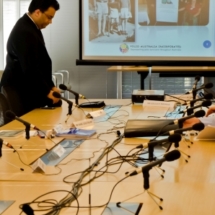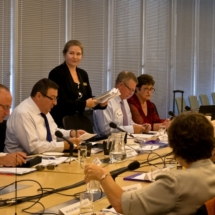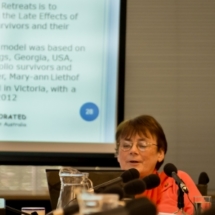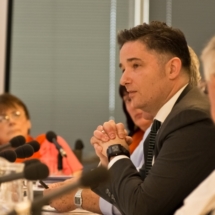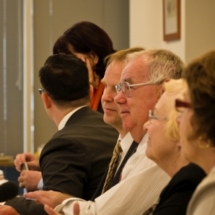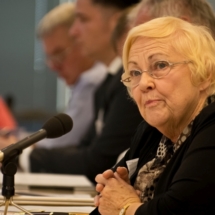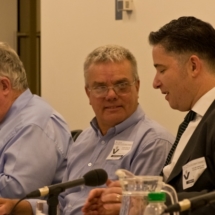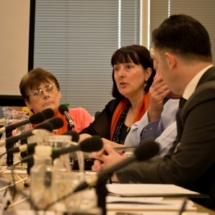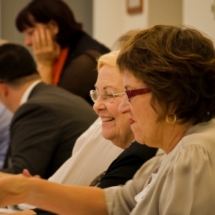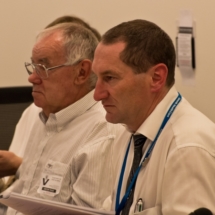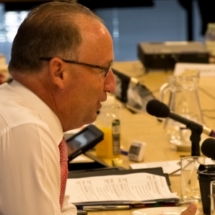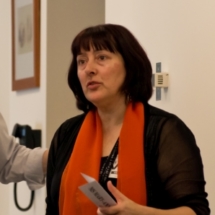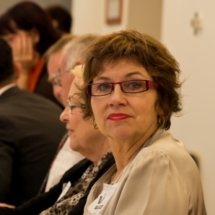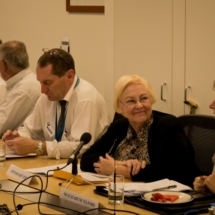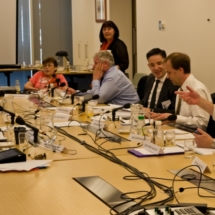On 30 March 2012 representatives from Polio Australia and State Polio Networks participated in a Roundtable Forum on the Late Effects of Polio / Post-Polio Syndrome conducted by the Federal House of Representatives Standing Committee on Health and Ageing. The representatives presented cogent arguments on the urgent need for comprehensive, consistent, adequately funded health, disability and peer support services for all Australian polio survivors.
On 4 July 2012 the Committee tabled a Discussion Paper resulting from the evidence taken during the Roundtable Forum. Publicity following the release of the Discussion Paper led the Australian Medical Association to report “Polio survivors going undiagnosed” in an Australian Medicine Online article on 16 July 2012 – this acknowledgement was a significant breakthrough for Australia’s polio survivors.
Click here to read the Forum documents
As noted by the Committee in their Discussion Paper:
As already acknowledged, the impact of LEOP/PPS is significant, not only for sufferers but also for their families and carers. The peer support and advocacy provided by Polio Australia and the state-based polio networks assists those affected by LEOP/PPS by providing access to information and advice, and also importantly by providing social and emotional supports.
The Committee was impressed by the commitment and passion of roundtable participants and their supporters, some of whom came to observe the day’s proceedings. It was evident to the Committee that Polio Australia and the state-based polio networks are a cohesive and unified group dedicated to improving the lives of polio survivors, their families and carers.
In its comprehensive Report the Committee recognised the urgent need for Polio Australia to receive funding for its work:
The Committee notes the potential for awareness raising activities, and professional capacity building activities to be supported under DoHA’s Chronic Disease Prevention and Service Improvement Flexible Fund. Therefore, the Committee encourages Polio Australia, either in its own right as an incorporated entity or in partnership, to investigate options of applying for funding under this initiative to promote awareness of LEOP/PPS.
The Committee concluded its Discussion Paper with the following:
To support its aim of raising the profile of LEOP/PPS further, the Committee undertook to produce this discussion paper for presentation in Parliament and to the Minister for Health for consideration. Importantly, this discussion paper not only outlines the key issues raised during discussion, but at various points the Committee has clearly expressed its views in Committee comment. However, and while acknowledging the limits of inquiry conducted by a single roundtable, on further consideration the Committee concluded that some key issues warrant specific recommendation. In particular, the Committee considered recommendations should address the need to determine the potential size of the population at risk of developing LEOP/PPS and options for raising awareness.
These are the three recommendations made by the Committee:
Recommendation 1
The Committee recommends that the Australian Bureau of Statistics and/or the Australian Institute of Health and Welfare establish mechanisms through inclusion of appropriate questions in existing health and/or disability surveys to estimate and report on the size of the population of polio survivors living in Australia, and the proportion of that population experiencing the late effects of polio/post-polio syndrome.
Recommendation 2
The Committee recommends that the relevant National Boards, in consultation with key stakeholders including peak professional bodies, medical/health educators and training providers, seek to ensure curricula for students includes information on the late effects of polio/post-polio syndrome, to raise awareness of the condition as a possible diagnostic outcome and of best practice for treatment and management.
Recommendation 3
The Committee recommends that Medicare Locals actively engage with Polio Australia and the state-based post-polio associations, with state and territory government departments of health, and with general practitioners to promote activities which will raise awareness of the late effects of polio/post-polio syndrome:
- among practicing health professionals through continuing professional development; and
- in the community through patient education, noting the need to tailor communication to enhance engagement with specific population groups taking into account demographic factors such as age and cultural background.





